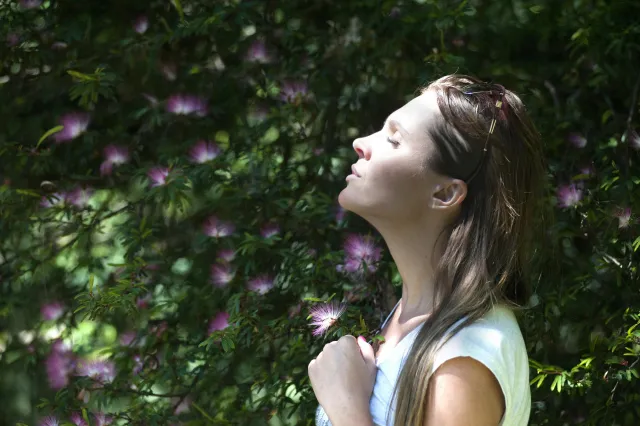Introduction

Life can be stressful. From picking up the kids from school to paying the bills, life can sometimes feel like waves of to-dos that keep coming our way. And for those who volunteer in our 4-H youth development program, there can be additional sources of stress, such as helping prepare youth for an upcoming county fair presentation, leading a 4-H project with engaging content, and sometimes having a disagreement with another 4-H volunteer or parent.
During these life situations, how can we ensure that our health and wellness are prioritized? How can we take care of our mental, emotional, and physical wellbeing? How do we cope with everyday stresses?
Practicing Mindfulness
One strategy of self-care and coping with stress is the practice of mindfulness. What is mindfulness? It has been defined in various ways. Jon Kabat-Zinn defines it as "paying attention in a particular way: on purpose, in the present moment, and nonjudgementally." The American Psychological Association defines mindfulness as, "awareness of one's internal states and surroundings" and explains it can "help people avoid destructive or automatic habits and responses by learning to observe their thoughts, emotions, and other present-moment experiences without judging or reacting to them." These two definitions of mindfulness both discuss the importance of being aware of the present moment. So what are the benefits of mindfulness?
Benefits of Mindfulness
The Mayo Clinic Health System says that mindfulness engages the brain and is a form of exercise. They also say that decades of research into the practice of mindfulness reveals an increase the following:
- Cognitive flexibility
- Diabetes control
- Emotion regulation
- Empathy
- Focus and attention
- Immune system response
- Memory
- Positive emotions
- Positive relationships
- Relaxation
- Self-compassion
- Self-esteem
The practice of mindfulness also can reduce the following:
- Addictive behaviors
- Anger and hostility
- Anxiety
- Burnout
- Depression
- Emotional reactivity
- Insomnia
- High blood pressure
- Need for pain medications
- Physical pain
- Post-traumatic stress disorder symptoms
- Stress
How To Practice Mindfulness
The Mayo Clinic provides several structured mindfulness exercises:
- Body scan meditation (focusing our attention slowly and deliberately on each body part from our head to our toes to identify any sensations, emotions, or thoughts for each body part)
- Sitting meditation (breathing through our nose and exhaling through our mouth and focusing on our breath movement)
- Walking meditation (While walking, focusing on sensations of standing and keeping our balance)
There are also mobile applications that provide guided mindfulness exercises, such as Headspace and Calm.
Application for Youth Development Practitioners
As we prepare for a new 4-H program year, we have an opportunity to practice self care as an important step of our preparation. As we know, the fourth "H" of 4-H is pledging our "health for better living." One way we can prioritize our health is by caring for our mental health. To do so, consider practicing mindfulness several times this week. With practice, you will be preparing your health for better living.
References
Kabat-Zinn, J. (1994). Wherever you go, there you are: mindfulness mediation for everyday life. (No Title).
